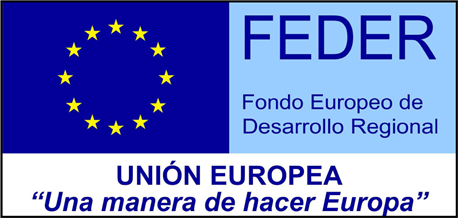ENVIRONMENT
Commitment to quality and commitment to the environment.
In 1997 HARIVASA obtained the ISO 9002 quality certificate, being the first flour industry in Navarre to do so.
In 1998 and 1999, an occupational risk management system was developed and implemented, in accordance with the Occupational Risk Prevention Act, and in 2000, this commitment affected the entire production process, minimising polluting emissions, using energy efficiently, recycling all types of materials and, in short, preserving our environment in the best possible conditions.
Obtaining the ISO 14001 environmental management certificate in 2000 for the production of wheat flour, rye flour, special flours, germ and bran and for the commercialisation of organic flour marks a new milestone in the history of the company, as it was the first to obtain it in Spain and in Europe.
During 2021 Harivasa is the promoter and developer of the first certification of sustainable wheat and flour production in Spain, together with Aenor and the AN group, the aim of this certification being to promote agriculture with the least possible impact on the environment and biodiversity.
In 2022 Harivasa obtains certification as a sustainable flour producer. In this way, AENOR recognises Harivasa's good practices to promote well understood sustainability, which implies satisfying current needs without compromising the ability of future generations to satisfy theirs, guaranteeing a balance between economic growth, care for the environment and social wellbeing.
This company has received a grant co-financed at 50% by the European Regional Development Fund through the 2014-2020 ERDF Operational Program of Navarra

ENVIRONMENTAL PERFORMANCE INFORMATION 2024:
1. SUSTAINABILITY:
Harinera del Mar S.XXI at its HARIVASA plant (Noain) continues to be committed to providing its customers with sustainable flours that are more respectful of the environment: In 2024, 12% of flour sales have been sustainable flours.Sales details:
- IN 2024: 23,286 tonnes of sustainable flours
- IN 2023: 31,041 tonnes of sustainable flours
- IN 2022: 23,286 tonnes of sustainable flours
- IN 2021: 10,586 tonnes of sustainable flours
- IN 2020: 1,699 tonnes of sustainable flours
2. CONSUMPTION:
Harinera del Mar S.XXI in its HARIVASA plant (Noain) continues to work on reducing auxiliary materials and energy resources. In 2024 it has managed to reduce the consumption of plastic film by 24% and electricity consumption by 5% compared to the averages of the last 3 years.
3. WASTE:
Harinera del Mar S.XXI at its HARIVASA plant (Noain) is working to reduce waste generated at its facilities, achieving a 20% reduction in oil waste and a 25% reduction in aerosol waste in 2024 compared to the average for the last 3 years.
Previous years:
Year 2023:
- SUSTAINABILITY: The production of sustainable flour has increased to 15% of our sales.
- CONSUMPTION: Consumption of plastic film has been reduced by 14% compared to the average of the previous 3 years.
- WASTE: Contaminated rag waste has been reduced by 21% compared to the average of the previous 3 years.
Year 2022:
- SUSTAINABILITY: The production of sustainable flour has increased to 9% of our sales.
- CONSUMPTION: Consumption of plastic film has been reduced by 11% compared to the average of the previous 3 years.
- WASTE: The consumption of aerosols has been reduced by 41% compared to the average of the previous 3 years.
Year 2021:
- SUSTAINABILITY: The production of sustainable flour has been increased by 11%.
- CONSUMPTION: Water consumption was reduced by 7.7% in 2021. 70% of electricity comes from renewable sources.
Year 2020
- SUSTAINABILITY: 5% of milled wheat is of sustainable origin.
- CONSUMPTION: Plastic film consumption has been reduced by 12% compared to 2019 and paper consumption has been reduced by 30% compared to 2019.
Year 2019
- CONSUMPTION: Water consumption is reduced by 1% with a 1% increase in production, paper sack consumption is reduced by 3.4% and office paper consumption is reduced by 2.4%.
Year 2018
- CONSUMPTION: Consumption of office paper was reduced by 14% and consumption of paper sacks by 9%.
- WASTE: Contaminated material waste was reduced by 16% over our environmental targets.
Year 2017
- CONSUMPTION: Water consumption is reduced by 10% compared to the last 3 years.
- WASTE: Industrial oil waste was reduced by 28.5% compared to the last 3 years.









